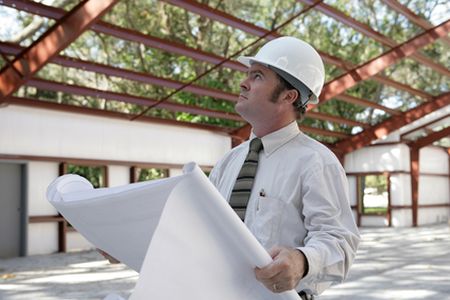When it comes to buying or leasing commercial properties, building inspections are an essential step in the due diligence process. A building inspection is a thorough evaluation of the property’s condition, which can identify potential problems and help you make informed decisions. In this article, we’ll discuss what you need to know about building inspections for commercial properties.
Contents
Why Building Inspections are Important
Building inspections are important for several reasons. First, they can identify potential safety hazards. For example, an inspector may find structural issues that could lead to the collapse of the building or electrical problems that could cause a fire.
Second, building inspections can identify potential code violations. For example, an inspector may find that the building does not meet accessibility requirements, which could lead to legal issues.
Finally, building inspections can help you make informed decisions. If the inspector finds issues, you can use this information to negotiate a lower price or require the seller to make repairs before the sale is finalized.

Types of Building Inspections
There are several types of building inspections that may be required for commercial properties. The most common types include:
- Structural Inspection: This inspection evaluates the structural components of the building, including the foundation, framing, and roof.
- Electrical Inspection: This inspection evaluates the electrical systems in the building, including wiring, panels, and outlets.
- Plumbing Inspection: This inspection evaluates the plumbing systems in the building, including pipes, fixtures, and water heaters.
- HVAC Inspection: This inspection evaluates the heating, ventilation, and air conditioning systems in the building.
- Environmental Inspection: This inspection evaluates the presence of hazardous materials, such as asbestos or lead paint, in the building.
- Accessibility Inspection: This inspection evaluates whether the building meets accessibility requirements, such as the Americans with Disabilities Act (ADA).
- Pest Inspection: This inspection evaluates the presence of pests, such as termites or rodents, in the building.
It’s important to work with a qualified inspector who can identify potential issues and provide recommendations for remediation.
When to Get a Building Inspection
Building inspections should be conducted before a sale or lease agreement is finalized. This allows you to identify potential issues and negotiate repairs or a lower price before committing to the property. In some cases, building inspections may also be required by law or by lenders.
Choosing an Inspector
When choosing an inspector, it’s important to look for someone who is qualified and experienced. Look for an inspector who is licensed, insured, and certified by a professional organization, such as the International Association of Certified Home Inspectors (InterNACHI).
You should also ask for references and check online reviews to ensure that the inspector has a track record of providing high-quality services. Finally, be sure to ask about the inspector’s process and what types of issues they look for during the inspection.
What to Expect During a Building Inspection
During a building inspection, the inspector will evaluate the property’s condition and identify potential issues. They may use specialized tools, such as thermal imaging cameras, to identify hidden problems.
After the inspection is complete, the inspector will provide a detailed report that outlines their findings. The report may include photographs and recommendations for remediation.
It’s important to review the report carefully and ask any questions you may have. If the report identifies issues, you can use this information to negotiate repairs or a lower price.
Conclusion
Building inspections are an essential step in the due diligence process when buying or leasing commercial properties. They can help identify potential safety hazards, code violations, and other issues, which can help you make informed decisions. If you’re in the market for a commercial property, be sure to work with a qualified inspector and schedule a building inspection before finalizing any agreements.




[…] Why Insurance Companies Require Building Inspections […]